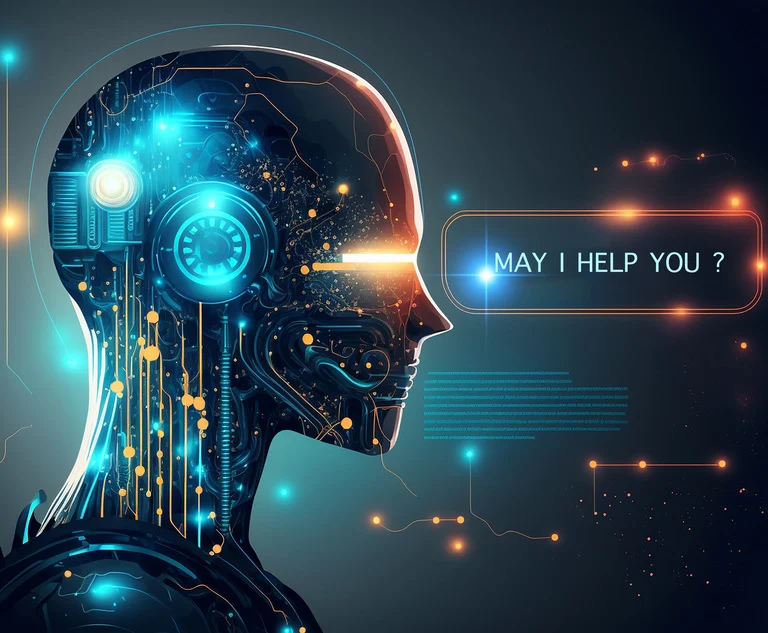Artificial Intelligence (AI) is revolutionizing industries across the board, and the legal sector is no exception. Legal technology, or legal tech, is rapidly evolving with the integration of AI, offering new tools and solutions that streamline legal processes, enhance efficiency, and improve client outcomes. This article explores how AI is transforming the legal industry, including its applications, benefits, challenges, and future prospects.

Understanding AI in Legal Tech
AI in legal tech refers to the use of artificial intelligence technologies to improve and automate various aspects of legal practice. AI systems leverage machine learning, natural language processing (NLP), and other advanced algorithms to perform tasks that traditionally required human expertise. This integration helps legal professionals manage large volumes of data, reduce manual workload, and make more informed decisions.
1. Key AI Technologies in Legal Tech:
- Natural Language Processing (NLP): NLP enables computers to understand, interpret, and generate human language. In legal tech, NLP is used to analyze legal documents, extract relevant information, and facilitate communication between clients and legal professionals.
- Machine Learning: Machine learning algorithms learn from data patterns and improve their performance over time. In the legal field, machine learning can predict case outcomes, identify legal trends, and recommend strategies.
- Automated Document Review: AI-driven tools can review and analyze legal documents at high speeds, identifying key information, potential issues, and relevant case laws.
Applications of AI in Legal Tech
AI is being applied across various areas of legal practice, providing solutions that enhance efficiency, accuracy, and client service. Some prominent applications include:
1. Legal Research and Document Review:
- Enhanced Research: AI-powered legal research tools can quickly sift through vast databases of case law, statutes, and regulations to find relevant information. These tools use NLP to understand legal queries and provide precise search results.
- Automated Document Analysis: AI systems can analyze contracts, pleadings, and other legal documents, extracting key clauses, identifying inconsistencies, and suggesting revisions. This reduces the time spent on manual review and minimizes errors.
2. Predictive Analytics:
- Case Outcome Prediction: AI algorithms can analyze historical case data and predict the likelihood of various outcomes. This helps legal professionals assess the strength of their cases, develop strategies, and make informed decisions.
- Risk Assessment: AI tools can evaluate potential risks associated with legal decisions, contracts, and transactions, helping firms and clients mitigate legal and financial risks.
3. Contract Management and Automation:
- Contract Drafting: AI-powered contract drafting tools can generate standard contract templates and suggest clauses based on specific requirements. This accelerates the drafting process and ensures consistency.
- Contract Review: AI systems can review contracts to identify critical terms, obligations, and compliance issues, reducing the risk of overlooked details and enhancing contract management.
4. E-Discovery:
- Efficient Data Processing: In litigation, e-discovery involves reviewing large volumes of electronic evidence. AI tools can automate the process of identifying, categorizing, and analyzing relevant data, speeding up the discovery phase and reducing costs.
5. Client Interaction and Support:
- Chatbots and Virtual Assistants: AI-powered chatbots can handle routine client inquiries, schedule appointments, and provide basic legal information. This improves client engagement and allows legal professionals to focus on more complex tasks.
- Personalized Client Service: AI tools can analyze client data to offer tailored legal advice and solutions, enhancing the overall client experience.

Benefits of AI in Legal Tech
The integration of AI into legal tech offers numerous advantages for legal professionals and clients alike:
1. Increased Efficiency:
- Time Savings: AI automates repetitive and time-consuming tasks, such as document review and research, allowing legal professionals to focus on more strategic and complex aspects of their work.
- Faster Decision-Making: AI-powered tools provide quick access to relevant information and predictive insights, enabling faster and more informed decision-making.
2. Enhanced Accuracy:
- Reduced Errors: AI systems can analyze vast amounts of data with high precision, reducing the risk of human errors in tasks such as document review and legal research.
- Consistent Quality: AI tools ensure consistency in legal work by following predefined rules and algorithms, minimizing variations in quality.
3. Cost Savings:
- Lower Operational Costs: By automating routine tasks, AI reduces the need for manual labor, leading to cost savings for law firms and clients.
- Efficient Resource Allocation: AI enables law firms to allocate resources more effectively, focusing on high-value activities and client interactions.
4. Improved Client Service:
- Enhanced Accessibility: AI-powered chatbots and virtual assistants provide clients with 24/7 access to legal support and information, improving overall service and satisfaction.
- Personalized Solutions: AI tools analyze client data to offer customized legal solutions and advice, addressing individual needs and preferences.
Challenges and Considerations
Despite its numerous benefits, the integration of AI in legal tech presents several challenges:
1. Data Privacy and Security:
- Confidentiality Concerns: The handling of sensitive legal data by AI systems raises concerns about data privacy and security. Ensuring that AI tools comply with legal and ethical standards is essential.
- Cybersecurity Risks: The use of AI introduces potential cybersecurity risks, including data breaches and unauthorized access. Robust security measures are necessary to protect client information.
2. Ethical and Regulatory Issues:
- Bias and Fairness: AI algorithms may inadvertently introduce biases based on the data they are trained on. Ensuring fairness and transparency in AI decision-making processes is crucial.
- Regulatory Compliance: The legal industry must navigate complex regulatory frameworks and ethical considerations related to the use of AI technologies.
3. Integration and Adaptation:
- Technology Adoption: Adopting AI technologies requires investment in infrastructure and training. Law firms must be prepared to integrate new tools into their existing workflows.
- Change Management: The shift to AI-driven processes may face resistance from legal professionals accustomed to traditional methods. Effective change management strategies are needed to facilitate smooth transitions.
Future Prospects
The future of AI in legal tech holds exciting possibilities for further innovation and transformation:
1. Advanced AI Capabilities:
- Deep Learning: Advances in deep learning and neural networks will enable more sophisticated AI applications, improving the accuracy and capabilities of legal tech tools.
- Enhanced Natural Language Understanding: Improved NLP will lead to more accurate and context-aware legal research and document analysis.
2. Greater Automation:
- End-to-End Solutions: AI-driven platforms will increasingly offer end-to-end solutions for legal processes, from document drafting to case management and client support.
- Autonomous Legal Tasks: AI may handle more complex legal tasks autonomously, reducing the need for human intervention in routine procedures.
3. Expanded Applications:
- Legal Tech Startups: The growth of legal tech startups will bring innovative solutions and applications to the market, driving further advancements in AI technology.
- Global Adoption: AI in legal tech will continue to expand globally, providing legal services to a wider audience and addressing diverse legal needs.

Conclusion
AI is transforming the legal industry by introducing new technologies and solutions that enhance efficiency, accuracy, and client service. From automated document review to predictive analytics and contract management, AI offers significant benefits for legal professionals and clients. While challenges related to data privacy, ethics, and integration remain, the future of AI in legal tech promises continued innovation and progress. As AI technologies evolve, they will play an increasingly important role in shaping the future of legal services, driving improvements in practice management and client outcomes.


